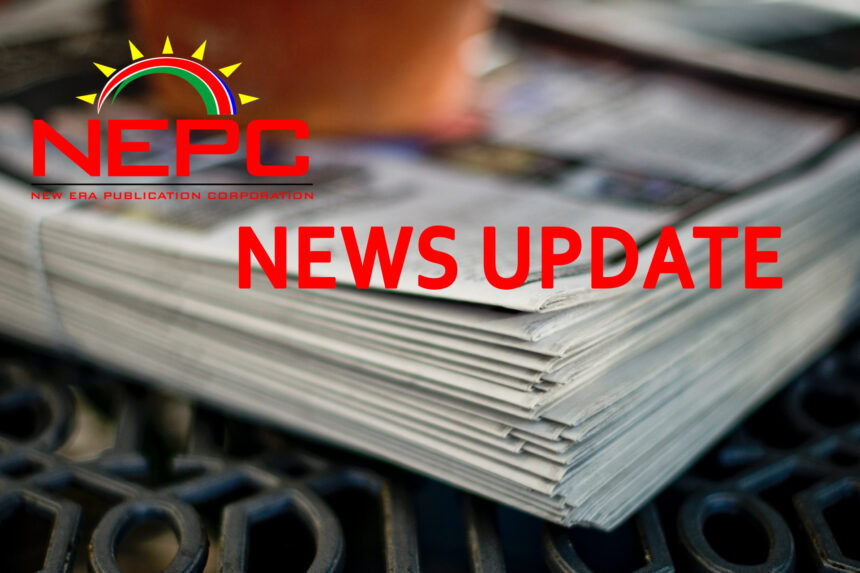IN the south-western corner of the African continent, an underdog story is unfolding that has captured the world’s attention – Namibia’s national football team, the Brave Warriors, have made history by qualifying for the knockout stage of the 2023 Africa Cup of Nations (Afcon) tournament in Ivory Coast for the first time in history.
It was nothing but teeming euphoria and scenes of jubilation at the San Pedro Stadium in Ivory Coast and here at home on Wednesday night, following Namibia’s hard-fought 0-0 draw against favourites Mali; which saw them progress to the Round of 16 of the tournament for the first time ever.
The progression, which was historic and of momentous proportions when viewed from all possible standpoints, also saw the Brave Warriors joining neighbours South Africa and Mali as the teams from Group E to progress to the knockout stage of the competition. Tunisia finished last in the group and were eliminated.
The Brave Warriors will now face Angola in the first knockout round tomorrow and while the Angolans will be the favourites on the day, coach Collin Benjamin and his charges will have everything to play for and should thus not be underestimated.
Not only was the Brave Warriors’ progression to the knockout stage of the tournament historic in nature, but it also goes a long way in terms of solidifying and further bolstering national pride, and national unity and adds to the pressing importance of investing more in sports infrastructure at home.
Prior to securing their fourth qualification to the continent’s biggest football showpiece late last year, the Brave Warriors were embarrassingly forced to play all their home games on foreign soil, specifically in South Africa due to the ongoing non-availability of Fifa/Caf-approved stadiums in the country.
Not only did the country reach the tournament’s knockout stages for the first time ever on Wednesday, but their 1-0 win over Tunisia in the opening group match was also their first ever win at the Afcon.
The win against Tunisia sent shockwaves across the continent as a lowly-ranked Namibian side was not expected to beat Africa’s third-best team.
Both those aspects should serve as a serious building block for the current crop of players to achieve even more success at continental and regional levels, and should also serve as motivation for the next generation of Brave Warriors to reach greater heights.
The magnitude of Namibia’s qualification for the Afcon knockout stages cannot be overstated. In a sport where population size often correlates with success, Namibia’s accomplishment stands out as an inspiration to nations with similar constraints.
The Brave Warriors have reminded the world that the beautiful game belongs to those who embrace it with passion and dedication, not just those with lavish stadiums and state-of-the-art training facilities – although those enmities are an important part of the bigger parcel.
This Brave Warriors story needs a Hollywood blockbuster and should be studied in academia.
Importantly, the country’s applaudable performance at the ongoing Afcon, which has been under trying circumstances due to misplaced domestic priorities as far as sports funding is concerned, should be a chilling wake up call to the country’s leadership, especially the line ministry, to get its ducks in a row and put its money where its mouth is.
The government’s role does not only start and end with dishing out money for the national team to travel to the Afcon whenever they qualify, but it starts with laying a fertile ground for the national team to have a smooth qualification passage, and one such step is to ensure we revive and upgrade our national stadiums to Fifa/Caf-approved standards.
Our national teams cannot continue to play their home games on foreign soil due to an evident unwillingness or rather sloppy approach towards investing in sports facilities locally and in the future of our youth.
The Brave Warriors’ journey to the Afcon knockout stage has the potential to transform the landscape of sports in Namibia.
Beyond the immediate celebration, a strategic and forward-thinking approach is needed to capitalise on this success for long-term benefits. Investments in youth development, sports infrastructure, and sustainable revenue generation will not only elevate Namibia’s standing in global football but also contribute to the overall well-being and unity of the nation.
For most Namibians, sports have long been an integral part of our national identity and pride, serving as a vehicle for expressing shared cultural values and aspirations.
As witnessed at various localities countrywide over the past few weeks, the Brave Warriors’ inspiring display in Ivory Coast has proved that football and sports, in general, can transcend differences in language, ethnicity, religion, and politics, providing a common ground for people to rally around their country as one.
As we head into tomorrow’s pivotal knockout clash against neighbours Angola, we can only wish our boys all the best of luck and whatever happens tomorrow, we remain Bravely Namibian.


